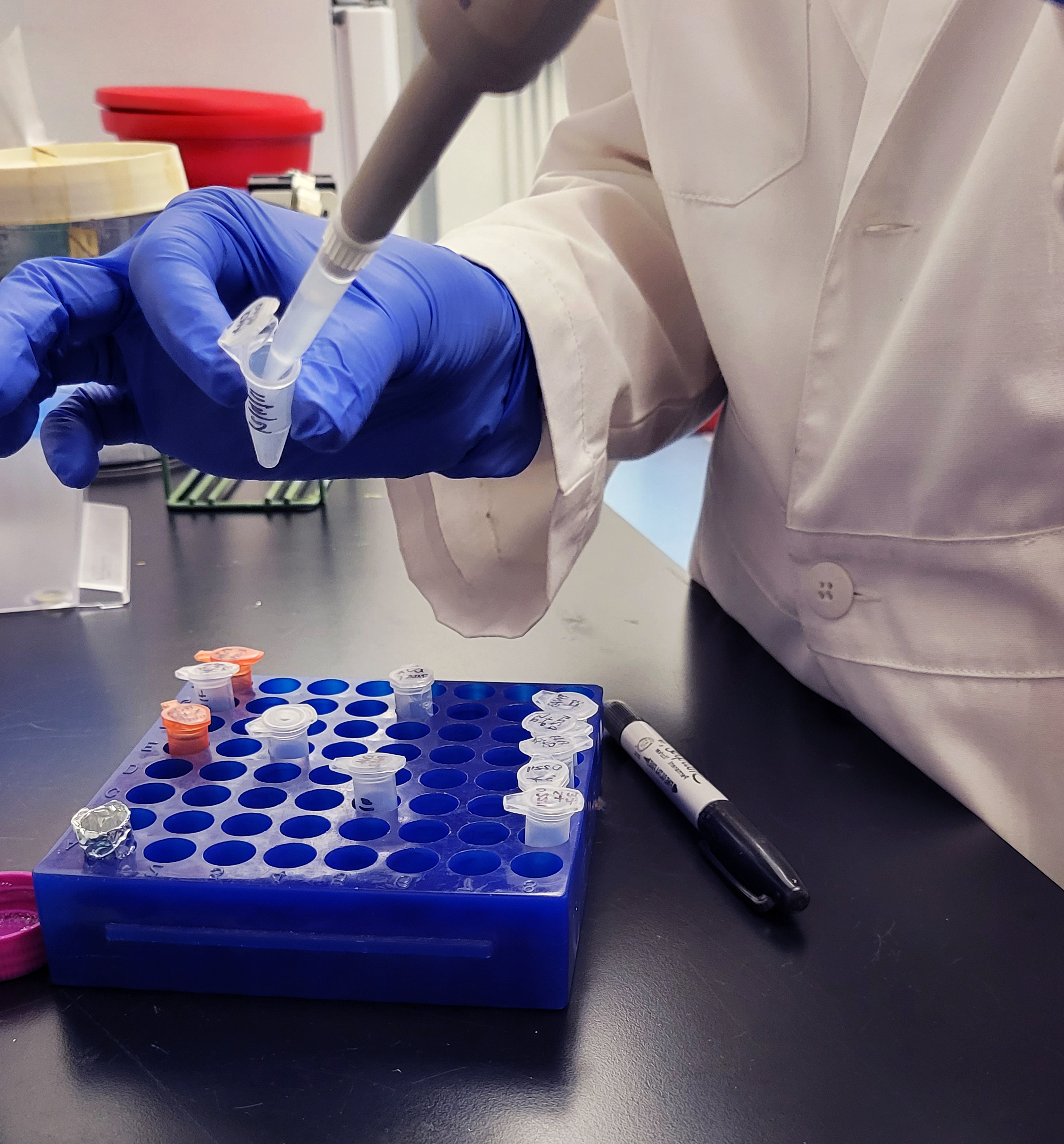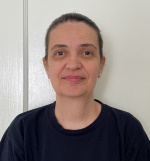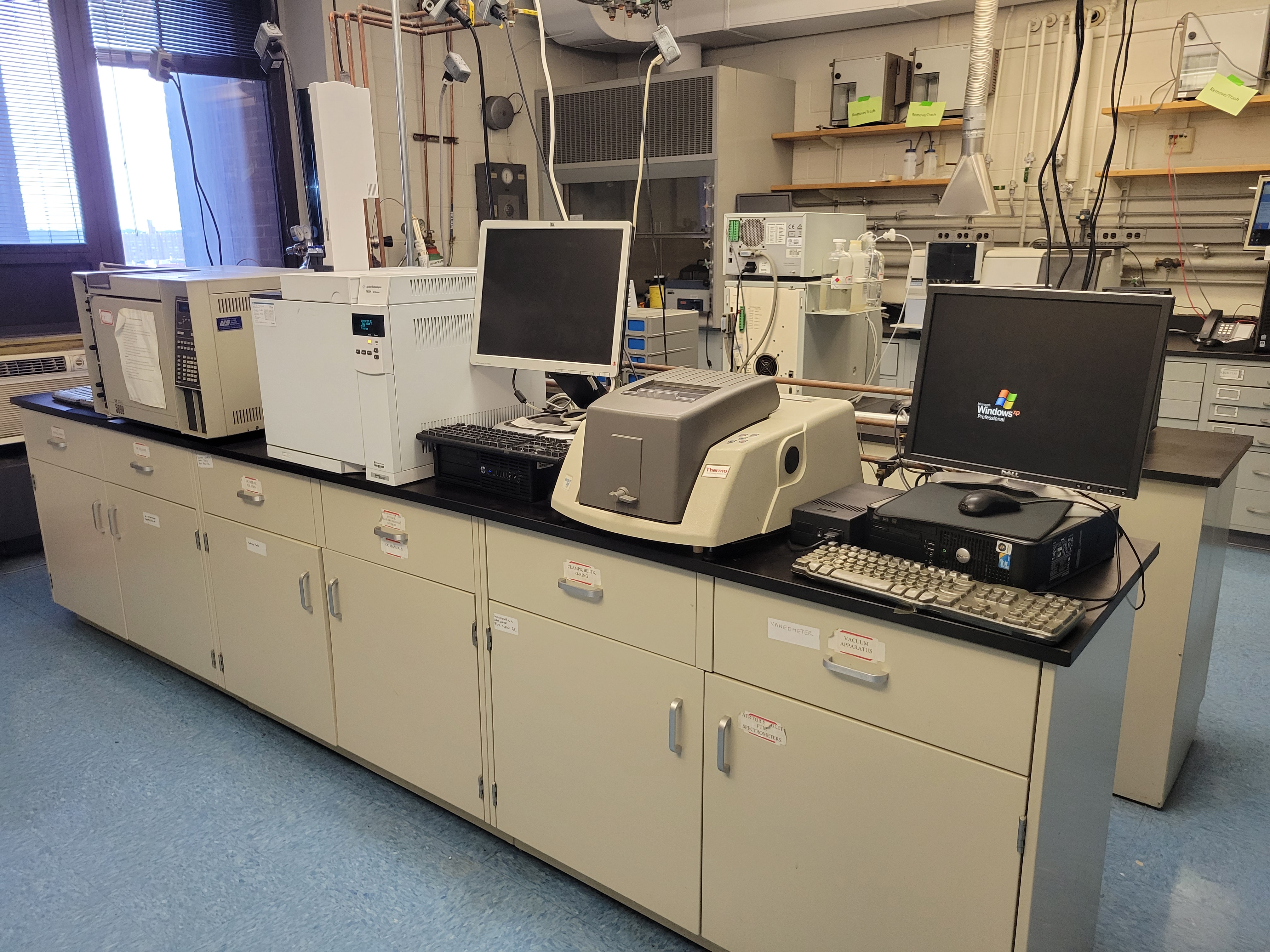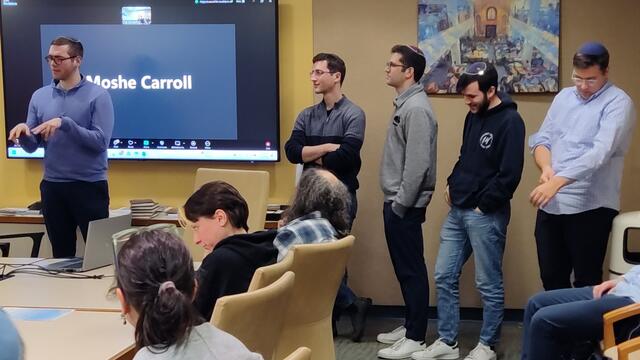
Chemistry and Biochemistry
 The Department of Chemistry and Biochemistry at Yeshiva College offers a rigorous program of study that emphasizes traditional chemistry and biochemistry curricula as well as encourages undergraduate students to engage in research with our faculty members during the academic year and summer. Students interested in a career in chemical engineering may consider the combined engineering program with Columbia University School of Engineering and Applied Science
The Department of Chemistry and Biochemistry at Yeshiva College offers a rigorous program of study that emphasizes traditional chemistry and biochemistry curricula as well as encourages undergraduate students to engage in research with our faculty members during the academic year and summer. Students interested in a career in chemical engineering may consider the combined engineering program with Columbia University School of Engineering and Applied Science
Chemistry, a central science, serves as the basis for understanding the natural and physical sciences. A college graduate with a major in chemistry or biochemistry is prepared for a wide choice of science-related careers.
- The chemical and pharmaceutical industries provide opportunities for applied chemical and biochemical research
- Medicine and the health science fields emphasize the biological aspect of advances in chemistry and biochemistry
- Public service-minded individuals with a solid science education can find their niche in environmental protection agencies, consumer advocacy groups and various government offices.
- In the field of education, there is a nationwide shortage of science teachers on both the elementary and high school levels.
Program Information
Mission and Goals
-
The mission of the Department of Chemistry and Biochemistry is to provide our students with a solid foundation in the chemical and biochemical sciences and the skills required for scientific analysis and critical thinking. Upon completing the chemistry or biochemistry major the students will be prepared to attend graduate schools (Ph.D. programs) or professional schools (medical, dental, optometry and others). They will be also ready to study and work at various engineering and academic institutions. The undergraduate Chemistry program aims to prepare students for entry into graduate and professional programs and to become active and engaged members of the chemical scientific community by providing students with traditional chemical education integrated with modern research.
-
- Understand chemical principles in order to explain the phenomena of the natural world.
- Apply experimental techniques and chemical principles to investigate and solve problems.
- Effectively communicate technical and scientific information both verbally and in writing.
- Generate research ideas and design theoretical and experimental methods to test these ideas with faculty guidance.
Program Requirements
-
Chemistry Major (53 Credits)
Chemistry Requirements are available here.
Core Required Courses (32 credits)
-
CHE 1045R, General Chemistry I, 3 Credits
-
CHE 1046R, General Chemistry II, 3 Credits
-
CHE 1047L, General Chemistry Lab, 2 Credits
-
CHE 1213R, Organic Chemistry I, 3 Credits
-
CHE 1214R, Organic Chemistry II, 3 Credits
-
CHE 1215L, Organic Chemistry Lab, 2 Credits
-
CHE 1122C, Chemical Analysis, 4 Credits
-
CHE 1415R, Physical Chemistry I, 4 Credits
-
CHE 1416R, Physical Chemistry II, 4 Credits
-
CHE 1222, Advanced Laboratory Techniques, 3 Credits
-
CHE1937/1938 Chemistry Seminar, 1 Credit
-
Other Requirements (18 Credits)
-
MAT 1412R/H, Calculus I, 4 Credits
-
MAT 1413R/H, Calculus II, 4 Credits
-
PHY 1031 R&L, Physics I w/Lab, 5 Credits
-
PHY 1032 R&L, Physics II w/Lab, 5 Credits
Electives (1 required, 3 credits minimum)
-
CHE 1124, Forensic Chemistry, 3 Credits
-
CHE 1232C, Medicinal Chemistry, 3 Credits
-
CHEM 1233, Synth. & Character, 3 Credits
-
CHEM 1373C/H Bioinformatics, 3 Credits
-
CHE 1375C, Molecular Biochemistry, 4 Credits
-
CHE/BIO 1376R, Principles of Biochemistry, 3 Credits
-
CHE/BIO 1377L, Biochemistry Laboratory, 2 Credits
-
CHE 1378R, Advanced Biochemistry, 3 Credits
-
CHE 1379C, Metals In Biology, 4 Credits
-
CHE 1415L, Physical Chemistry Lab, 3 Credits
-
CHE 1607, Inorganic & Structural, 3 Credits
-
CHE 1611, Mol. Structure & Dynamics, 3 Credits
Recommended Courses
-
BIO 1011R&L, Biological Principles I w/Lab, 5 Credits
-
BIO 1012R&L, Biological Principles II w/Lab, 5 Credits
-
CHE 4911, Guided Research, 1-3 Credits
-
-
Biochemistry Major Requirements (61 Credits)
For students declaring Fall 2022 and after
-
CHEM 1045R, 1046R, 1047L, General Chemistry - Lecture and Lab, 8 Credits
-
BIOL 1011R&L, 1012R&L, Principles of Biology- Lecture and Lab, 10 Credits
-
CHEM 1213R, 1214R, 1215L, Organic Chemistry- Lecture and Lab, 8 Credits
-
CHEM 1415R or 1416R, Physical Chemistry I or II, 4 Credits
-
MATH 1412, Calculus I, 4 Credits
-
CHEM 1376R, Principles of Biochemistry - Lecture, 3 Credits
-
CHEM 1377L, Biochemistry Lab - 2 Credits
-
CHEM 1378R, Advanced Biochemistry - Lecture - 3 Credits
-
Introductory Physics: PHYS 1031R&L, 1032R&L, Introductory Physics - Lecture and Lab, 10 Credits
-
Two of the following courses:
-
BIOL 3207C, Cell Biology - Lecture and Lab, 4 Credits
-
BIOL 3230C, Immunology - Lecture and Lab, 4 Credits
-
BIOL 3513C, Genetics- Lecture and Lab, 4 Credits
-
BIOL 3521C, Molecular Biology - Lecture and Lab, 4 Credits
-
CHE 1379C, Chemistry of Metals in Biology - Lecture and Lab, 4 Credits
-
CHE 1372H, Bioinformatics - Lecture and Lab, 4 Credits
-
For current students declaring prior to Fall 2022 may follow the new requirements or the old requirements below.
Biochemistry Requirements (PDF)
-
CHEM 1045R, 1046R, 1047L, General Chemistry - Lecture and Lab, 8 Credits
-
BIOL 1011R&L, 1012R&L, Principles of Biology- Lecture and Lab, 10 Credits
-
CHEM 1213R, 1214R, 1215L, Organic Chemistry- Lecture and Lab, 8 Credits
-
CHEM 1415R or 1416R, Physical Chemistry I or II, 4 Credits
-
MATH 1412, 1413, Calculus I, Calculus II, 8 Credits
-
CHEM 1376R&L, Biochemistry - Lecture and lab, 5 Credits
-
The following Physics Sequence: PHYS 1031R&L, 1032R&L, Introductory Physics - Lecture and Lab, 10 Credits
-
Two of the following courses:
-
BIOL 3207C, Cell Biology - Lecture and Lab, 4 Credits
-
BIOL 3230C, Immunology - Lecture and Lab, 4 Credits
-
BIOL 3513C, Genetics- Lecture and Lab, 4 Credits
-
BIOL 3521C, Molecular Biology - Lecture and Lab, 4 Credits
-
CHE 1379C, Chemistry of Metals in Biology - Lecture and Lab, 4 Credits
-
CHE 1372H, Bioinformatics - Lecture and Lab, 4 Credits
-
-
-
Chemistry Minor (23 Credits)
Required Courses (20 credits)
-
CHE 1045R, General Chemistry 1, 3 Credits
-
CHE 1046R, General Chemistry 2, 3 Credits
-
CHE 1047L, General Chemistry Lab, 2 Credits
-
CHE 1213R, Organic Chemistry 1, 3 Credits
-
CHE 1214R, Organic Chemistry 2, 3 Credits
-
CHE 1215L, Organic Chemistry Lab, 2 Credits
-
CHE 1122C/1415, Chemical Analysis/Physical Chemistry 1, 4 Credits
Electives (1 required, 3 credits minimum)
-
CHE 1232C, Medicinal Chemistry, 3 Credits
-
CHEM 1233, Synth. & Character, 3 Credits
-
CHE 1375C, Molecular Biochemistry, 4 Credits
-
CH E 1377, Organometallic Chemistry, 3 Credits
-
CHE/BIO 1376R&L, Biochemistry, 5 Credits
-
CHE 1378H, Chemical Biology, 3 Credits
-
CHE 1379C, Metals In Biology, 4 Credits
-
CHE 1415L, Physical Chemistry Lab, 3 Credits
-
CHE 1607, Inorganic & Structural, 3 Credits
-
CHE 1611, Mol. Structure & Dynamics, 3 Credits
-
CHE 1124, Forensic Chemistry, 3 Credits
-
CHE 1415R, Physical Chemistry 1, 4 Credits
-
CHE 1416R, Physical Chemistry 2, 4 Credits
-
CHE 1222H, 3 Credits
-
CHEM 1373C/H Bioinformatics
-
-
Please see the Schedule of Classes for the current semester’s offerings. The courses regularly offered by the chemistry department are listed below.
CHE 1023L Science of Chemistry: Everyday Life (Lab)(1 credit)
Focuses on the study of the properties of matter through experimentation. An emphasis is placed on recording careful observations, collecting data, and analysis of results, including graphical analysis and calculations. Designed to cover concepts which complement the lecture topics, not duplicate them.
Corequisite: CHE 1023R.CHE 1023R Science of Chemistry: Everyday Life (Lecture) (2 credits)
Takes students on a journey from the observations which form the basis of Dalton's atomic theory through the discovery of subatomic particles and atomic structure, leading to trends in bonding. Molecular structures are covered from the simplest hydrogen molecule to DNA, pausing to consider the chemicals encountered in our 'everyday lives.'
Corequisite: CHE 1023L.CHE 1024L Science of Chemistry: Global Issues (Lab) (1 credit)
Examines contemporary environment issues through experimentation and provides an understanding of basic laboratory skills.
Corequisite: CHE 1024R.CHE 1024R Science of Chemistry: Global Issues (Lecture) (2 credits)
Examines contemporary environmental issues, such as fossil fuel consumption, global warming, nuclear power, and ozone depletion with an emphasis on problem-solving and an understanding of basic chemical principles.
Corequisite: CHE 1024L.CHE 1045H, 1046H Honors: General Chemistry I & II (Lecture & Lab) (5 credits)
This honors-level introduction to chemistry offers a rigorous, fast-paced and concept-rich approach that is ideal for students pursuing a major in the sciences or students on a pre-medical, pre-dental, or pre-engineering track. This two course sequence is recommended for chemistry majors and students interested in undergraduate research in chemistry but is also open to all non-science majors who desire a challenging but rewarding introduction to chemistry. Includes laboratory.CHE 1045R, 1046R General Chemistry I & II (3 credits)
This two course sequence explores the fundamental concepts of chemistry on both the atomic and macroscopic scales. Topics include atomic structure and stoichiometry; properties of gases, liquids, and solids; thermochemistry; quantum theory and the electronic structure of atoms; the periodic table and periodic properties; chemical bonding and molecular orbital theory; properties of solutions; thermodynamics; acid-base and solubility equilibria; chemical kinetics; electrochemistry; and nuclear chemistry.
Corequisite for CHE1046R: CHE1047LCHE 1047L General Chemistry Lab (2 credits)
Laboratory experiments are designed and scheduled to complement lecture topics in CHE1045R and 1046R and enhance students understanding of the principles introduced. Skills introduced include the transfer and manipulation of substances, synthesis and purification of inorganic compounds, absorption spectroscopy, titrations, quantitative analysis, and chemical kinetics. Students gain experience in scientific writing through sever lab reports.
Corequisite: CHE 1046R.CHE 1122C Chemical Analysis (4 credits)
This one-semester course introduces science majors and pre-health students to the principles and practice of analytical chemistry. The course begins with an introduction to analytical chemistry, including the analytical process, sampling, sources of error, statistics, and data interpretation. The course also covers major types of analyses, including wet methods, spectroscopy, chromatography, and potentiometric techniques. Classroom topics, discussions and problem solving exercises are closely coordinated with laboratory analyses.
Prerequisite: CHE 1045R&L, 1046R&L.CHE 1215L Organic Chemistry Laboratory (2 credits)
Organic Chemistry Laboratory covers the most common basic experimental techniques in organic chemistry. Emphasis is placed on basic techniques in separation, purification, identification and preparation of organic compounds. Students gain experience in scientific writing through several laboratory reports.
Prerequisite: CHE 1046R/H & 1047L.
Corequisite: CHE 1213RCHE 1213R, 1214R Organic Chemistry I & II (Lecture) (3 credits)
Organic chemistry explores the rich chemistry of carbon. Topics include the structure, synthesis, properties, and reaction mechanisms of the main classes of organic compounds, including compounds of biological importance.
Prerequisite: CHE 1046R/H and CHE1047L.
Corequisite: CHE 1215LCHE 1232C Medicinal Chemistry (3 credits)
The course covers the basic chemical and biological concepts underlying medicinal chemistry. The course content includes an overview of drugs and their action, approaches to drug discovery, quantitative structure-activity relationships, drug delivery, pharmacokinetics, and drug metabolism. Laboratory classes include the modification of a drug's chemical structure with both chemical and biological characterization of the product, determination of acidity and lipophilic/lipophobic drug character, synthesis of a combinatorial drug library, and an antimicrobial bioassay.
Prerequisite: CHE 1046R/H and CHE1047L.
Prerequisite or corequisite: CHE 1213R & 1215L.CHE 1233C Synthesis and Characterization of Organic and Inorganic Compounds (4 credits)
Advanced laboratory techniques; purification and characterization of compounds by physical and chemical methods including NMR spectrometry, UV-VIS and FTIR spectrophotometry, gas and high-performance liquid chromatography and mass spectrometry.
Prerequisite: CHE 1214R&1215L.CHE 1372C/H Bioinformatics (3 credits)
Modern Biology is data driven and bioinformatics is the combination of Biology and computing. With the data floods, analysis has become challenging. Bioinformatics has developed powerful tools to study problems that include large scale genetic sequencing and studies to understand how certain genes originate and change during evolution. This course will introduce students to some important tools in Bioinformatics that are necessary for the practice of modern biology and medicine. The course will introduce students to basic web-based tools for searching for similar sequences in proteins and nucleotides, accessing databases for protein structures and genes, visualizing molecular structures, to name a few. The course will also train students to read and interpret primary literature articles, write research reports, and make oral presentations.
Prerequisites: CHE1046R/H, BIO1012R&L or 1012C
[Crosslisted as BIO1372C/H]
CHE 1375R Molecular Biochemistry (4 credits)
Molecular biochemistry covers the biological aspects of cellular structure, metabolism, regulation, and replication from a chemist's perspective. The topics will range from the sequence of nucleic acids that give rise to functional proteins to the bioenergetic aspects of oxidative phosphorylation involved in cellular respiration. Particular emphasis will be placed on hot topics in modern biochemistry including protein-ligand interactions, DNA polymerization, and membrane transport.
Prerequisite: CHE 1046R/H and CHE1047L, BIO 1011R&L.
[Crosslisted as BIO 1375C]CHE 1376R Principles of Biochemistry (3 credits)
Structure and function of biological molecules, enzyme kinetics, bioenergetics, metabolism, storage and transmission of genetic information, recombinant DNA technology, and selected topics such as membrane transport, hormone action, and muscle contraction.
Prerequisite: BIO 1012R&L, CHE 1213R& CHE1215L.
[Crosslisted as BIO 1376R]CHE 1377L Biochemistry Laboratory (2 credits)
Illustration of the properties of biochemical substances; design and analysis of experiments. Techniques include chromatography, electrophoresis, differential centrifugation, and various types of enzyme assays, including spectrophotometric and radioactive.
Prerequisite or corequisite: CHE 1376R. [Crosslisted as BIO 1376L]CHE 1378 Advanced Biochemistry (3 credits)
Students will apply previously learned Biochemistry principles to study metabolic pathways, as well as the synthesis and metabolism of biomolecules. Students should be familiar with the molecular properties of biological macromolecules (nucleic acids, proteins, and carbohydrates) and lipids; understand the relationship between the structure and function of biomolecules; demonstrate knowledge of enzyme catalysis and reactions that make up metabolic pathways.
Prerequisite: CHE 1375R
Corequisite: CHE1377LCHE 1379H Chemistry of Metals in Biology (Lecture and Lab) (4 credits)
This course offers a chemical view of the metals in biological systems. Course content includes introductory coordination chemistry, spectroscopic methods used to study metal ions and metal complexes in biological system, and the catalytic properties of important metallo-proteins.
Prerequisite: CHE 1046R/H & CHE1047L.CHE 1415L Physical Chemistry Laboratory (3 credits)
Emphasizes the measurements and computations of physical chemistry. Experiments illustrate theoretical principles and provide basic experience with quantitative physical measurements including thermochemistry, chemical equilibria, kinetics, electrochemistry, spectrophotometry and computer interfacing. Applications to biochemical systems.
Corequisite or Pre-requisite: CHE 1415R.CHE 1415R, 1416R Physical Chemistry I & II (Lecture) (4 credits)
Physical chemistry explores the underlying physical and mathematical relationships that interconnect a diverse range of chemical concepts. The first semester considers the fundamentals of chemical thermodynamics, thermochemistry, chemical equilibria, phases of matter, aqueous solutions, electrochemistry, and the kinetic molecular theory of gases. The second semester explores the quantum mechanical nature of atoms and molecules, solutions to the Schrodinger equation, vibrational, rotational and electronic spectroscopies, the electronic structure of multi-electron atoms and molecules and chemical bonding.
Prerequisite: CHE 1046R/H &CHE1047L, MAT 1412/1413.
Prerequisite or corequisite: PHY 1031/1032R&L or 1041/1042R&L.CHE 1607 Inorganic and Structural Chemistry (3 credits)
This course introduces students to an advanced physical understanding of inorganic chemistry. Students will learn to use the theories of chemical bonding to predict the electronic structures of compounds and how those electronic structures then give rise to observed chemical and physical properties. Specifically, the transition between two-electron energies of weak ligand fields and one-electron energies of strong ligand fields will be highlighted to describe phenomena found in nature. Students who finish the course will understand how symmetry may be used to predict molecular properties, which metal complexes will be more stable than others, and how interactions between light, electrons, and nuclei are responsible for much of what we see in everyday life.
Prerequisite: CHE 1046R/H & 1047L, MAT 1413.CHE 1609H Bioinorganic Chemistry (3 credits)
Elucidates key inorganic chemistry concepts, including chemical bonding, structure, reactions and characterization methods and their applications in biology and medicine. Bioinorganic chemistry is a rapidly expanding interdisciplinary field. Topics include metalloenzymes, iron transport proteins, biomineralization in bones and shells and chemotherapeutic agents.
Prerequisite: CHE 1046R/H & 1047LCHE 1611, 1611H Molecular Structure, and Dynamics (3 credits)
This course introduces the structure of molecules through molecular modelling and covers the theoretical prediction of the electronic structure and properties of molecules, the manipulation and visualtion of structures, simulation techniques such as molecular dynamics and Monte Carlo methods, and familiarity with commonly used software packages. This course incorporates a workship based approach within an integrated lecture and computer laboratory format. Prerequisite: CHE 1046R/H & 1047LCHE 1930 Selected Topics (2 credits)
Seminar in current problems and literature in chemistry for seniors majoring in chemistry and selected juniors. Assigned topics, regular conferences and a report. Prerequisite: By permission of the instructor.CHE 1936 Introduction to Chemical Research (0.5 credits)
This course offers students an early exposure to the current research interests of our faculty as well as information about modern chemistry careers. This course is ideal for students with minimal background in chemistry or undergraduate research and serves to help students (particularly future majors) choose a research mentor during their undergraduate years. Students will have the opportunity to visit faculty research laboratories and obtain first-hand experience of chemical research.
Prerequisite or corequisite: CHE 1046R/H & 1047LCHE 1937, 1938 Seminar in Advanced Chemistry (1 credit)
Seminar meeting two hours every two weeks. Topics in all fields of chemistry.
Prerequisite or Corequisite: CHE 1213R & 1215L or by permission of the instructor.CHE 4911 Research in Chemistry (1-3 credits)
Department approval required; final approval required from Academic Standards in order to proceed. Laboratory fee on an individual basis.
Future and Past Events
-
March 19th, 2025 - Daniel Tso, Ph.D., Associate Professor of Neuroscience and Physiology at SUNY Upstate Medical School; Visiting Lecture Series with SUNY Upstate: "It's a Colorful World"
March 3rd, 2025 - Arie Borenstein, Ph.D., Department of Chemical Sciences, Ariel University; "Recent progress in Laser-induced Graphene for Energy system"
-
February 12th, 2025 - Open House!
YC Chemistry & Biochemistry Open House 2025
Faculty and Staff
-
 Clinical Associate Professor
Clinical Associate Professor
Ph.D. Utah State University
B. Eng. University "Politehnica" of Bucharest
Research Interests: Organic Chemistry, Biochemistry, RNA Structure and Folding,Regulatory RNAs, Advanced Light Microscopy
Full Faculty Profile -
Instructor in Chemistry, Emerita
-
 Associate Professor & Co-Chair
Associate Professor & Co-Chair
PhD The Hebrew University
Research Interests: Biochemistry, Antifreeze proteins, Microscopy
Full Faculty Profile -
 Senior Laboratory Instructional Specialist
Senior Laboratory Instructional Specialist
PhD, University of Illinois at Urbana-Champaign, 1982
BS, Wayne State University, 1977
Research Interests: Chemical Education, Biophysical Chemistry
Full Faculty Profile -
Senior Laboratory Technician
-
 Associate Professor of Chemistry
Associate Professor of Chemistry
PhD, State University of New York at Stony Brook
BS, Peking University
Research Interests: Inorganic Chemistry, Bioinorganic Chemistry -
Clinical Assistant Professor
PhD, New York Univeristy,
Honors Bachelor’s Degree in Chemistry and Biology ad hoc, with CIS, Zicklin School of Business, Baruch College, New York, NY
Research Interests: Computational Modeling and Experimental Validation to Address Real-World Challenges in Chemistry and Biochemistry
-
Assistant Professor
PhD, University of São Paulo, Brazil, 2010
Federal University of Santa Catarina, Brazil, 2004
Research Interests: Bioluminescence
Full Faculty Profile
-
 Associate Professor or Chemistry, Co-Chair
Associate Professor or Chemistry, Co-Chair
PhD, Columbia University
MA, Columbia University
BA, Columbia University
Research Interests: Computational Chemistry, Protein Structure and Function
Full Faculty Profile -
Laboratory Specialist
-
 Professor of Chemistry, Co-Chair
Professor of Chemistry, Co-Chair
PhD, Oklahoma State University
MS, BSC, Madras University
Research Interests: Computational Chemistry, Computational Biology, Protein-Protein Interactions
Full Faculty Profile
Facilities and Equipment
-

- Nicolet 380 FT-IR spectrometer
- Nicolet iS10 FT-IR spectrometer
- Biotage Initiator microwave reactor
- Biotage Isolera One chromatography station
- Glass Contours solvent purification system
- CH Instruments 630D electrochemical analyzer
- MBraun Unilab 2000 double glovebox
- Mettler-Toledo XS105 analytical balance
- Cary 300 dual beam UV-VIS spectrometer
- Agilent 7820A GC with autosampler and FID detector
- HP 5890 CG with FID detector
- Shimadzu 2010/QP2010 GC-MS
- Waters 1525/2487 HPLC system
- Buchi R200 rotovaps
- Perkin Elmer AAnalyst 300 atomic absorption spectrometer
- PTI 2798 fluorimeter
- Hettich Rotana 460R refrigerated centrifuge
- Various analytical balances and Schlenk lines
-
- Perkin Elmer DSC 4000 differential scanning calorimeter
- Perkin Elmer Enspire multimore plate reader
- (3) Erlab portable fume hoods
- Anasazi EFT-60 NMR spectrometer
- SI Analytics Trito Line automatic titrator
- LabSynergy automatic titrator
- Rudolph Autopol II polarimiter
- Perkin Elmer LS50B luminescence spectrometer
- Perkin Elmer Lambda 2 UV-Vis spectrometer with Peltier controller
- Perkin Elmer Lambda 40 UV-Vis spectrometer
- Perkin Elmer Spectrum 100 infrared spectrometer
- Eppendorf 5414 centrifuge
- Sorval RC5C+ centrifuge
- rotavaps and various analytical balances
Resources
-
Information and applications for undergraduate research programs may be found in the following sites:
-
American Chemical Society's Careers Page
Biochemical Society's Education and Careers Page
Royal Society of Chemistry's Careers Website
Sloan Career Cornerstone Center's Career Planning Resources in Chemistry
US Bureau of Labor Statistics Chemist and Material Scientist Jobs Outlook



